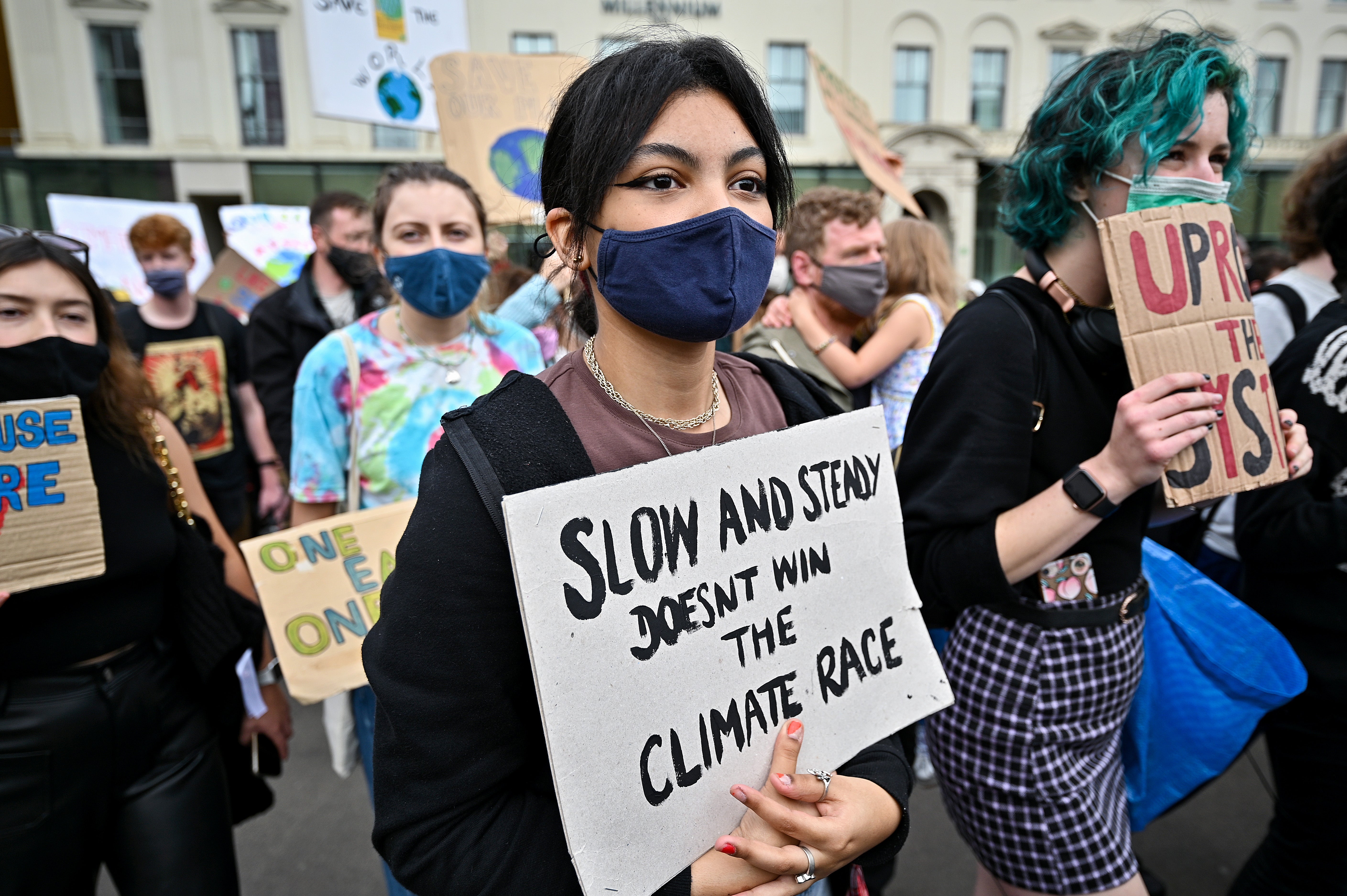What’s worrying young people the most? Hint: it’s not exams
Teenagers are concerned that adults – those they should consider ‘responsible’ – simply aren’t doing enough about the climate emergency, writes Ed Dorrell


Speaking to a teacher the other day about the things that most worried her teenage students, I was quite taken aback by her response.
Of course, all the tribulations of adolescence lived through the prism of social media were a constant worry, as were exam results and revision, but she also told me that they are incredibly anxious about climate change.
So worried were her students about the impact of global warming that she and her colleagues were nervous about adding to this level of stress by going on about it in the classroom.
What we were talking about, of course, is the phenomenon of "eco-anxiety" – the name now given for anyone, but especially young people, for whom the climate emergency is a constant source of fear.
It turns out that my teacher friend’s concerns were not unusual. Polling of parents carried out by Public First, where I am a director, for the new UCL Climate Change and Sustainability Education Centre, suggests children and teenagers are very, very worried about the crisis facing our planet. We found that concern about the environment dominated a long list of issues, including crime, racial and gender inequality, homelessness and Brexit.
As part of the poll of 1,000 parents, they were asked to select three topics which they believed were “most important to your child”, and whether they had spoken to their child about any of the issues listed. Some 50 per cent of parents picked “the need to protect our environment and climate” as one of the three most important topics, with 42 per cent saying they had spoken to their child about the issue. In contrast, discrimination faced by people of a different race or ethnicity was chosen by 27 per cent, with 28 per cent of parents saying they had discussed it.
We also organised a focus group of young people to discuss the same issue, and reached broadly the same conclusion: young people are deeply, deeply worried about this issue. They are worried about the consequences of the climate emergency on their futures and they are concerned that adults – those who they should consider “responsible” – simply aren’t doing enough about it.
Finally, and perhaps most worryingly, the young people we spoke to also expressed a sense of helplessness: that there was little or nothing they could do to arrest the impending disaster. Is it any wonder that there appears to be a growing epidemic in eco-anxiety?
To keep up to speed with all the latest opinions and comment, sign up to our free weekly Voices Dispatches newsletter by clicking here
I strongly suspect the pandemic hasn’t helped either. Millions of teenagers were asked to lock themselves down for months on end, away from their friends, from their teachers and from the world. In essence, we took away their agency at the very age when experimenting with it is such an important aspect of development.
The feeling of helplessness in face of a global phenomenon over which we had no control was everywhere, especially in those long bleak months of 2020. The parallels with global warming are there for anyone to see. The focus groups we organised of parents of teenagers during that time were some of the hardest I’ve ever had to run.
And yet – god willing – we have come out the other side. Through a huge exercise in collective self-control and spectacular human ingenuity, we do appear to be wrestling Covid-19 under control.
If we want to stop young people from suffering anxiety about the future of the planet, then there’s only one solution: the adults in their lives have to demonstrate that they are prepared to undertake a herculean effort in overcoming (or at the very least mitigating) the worst aspects of the emergency.
At the moment, too many teenagers appear to believe that the adults who run the world are not up to this challenge. It’s hard to make the case that they are wrong.






Join our commenting forum
Join thought-provoking conversations, follow other Independent readers and see their replies
Comments